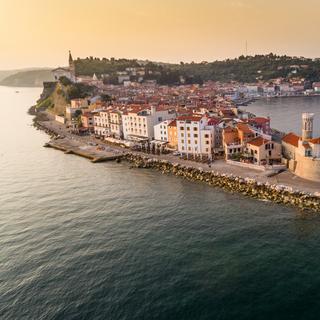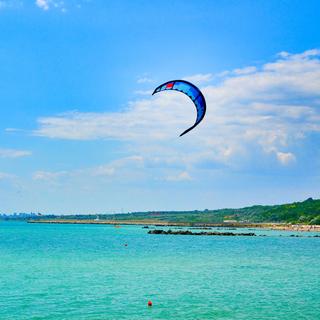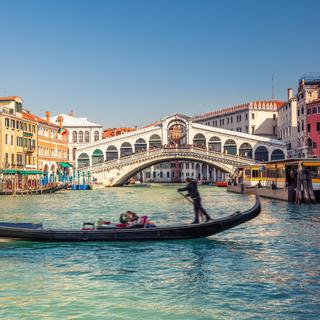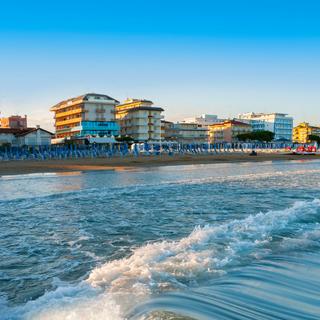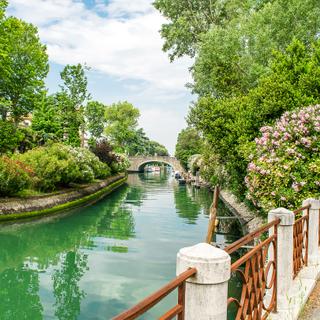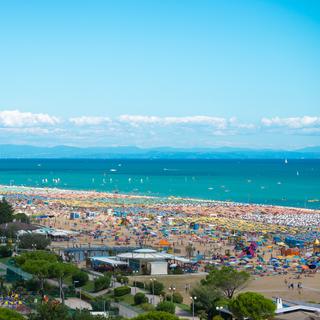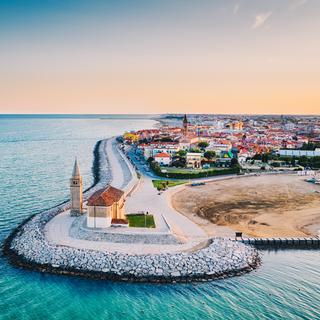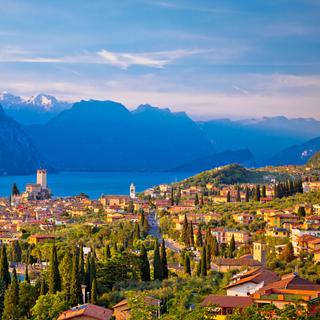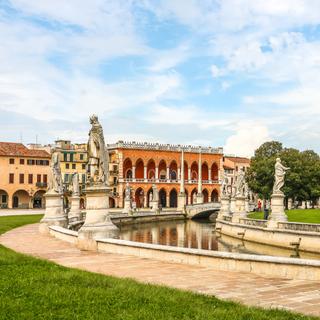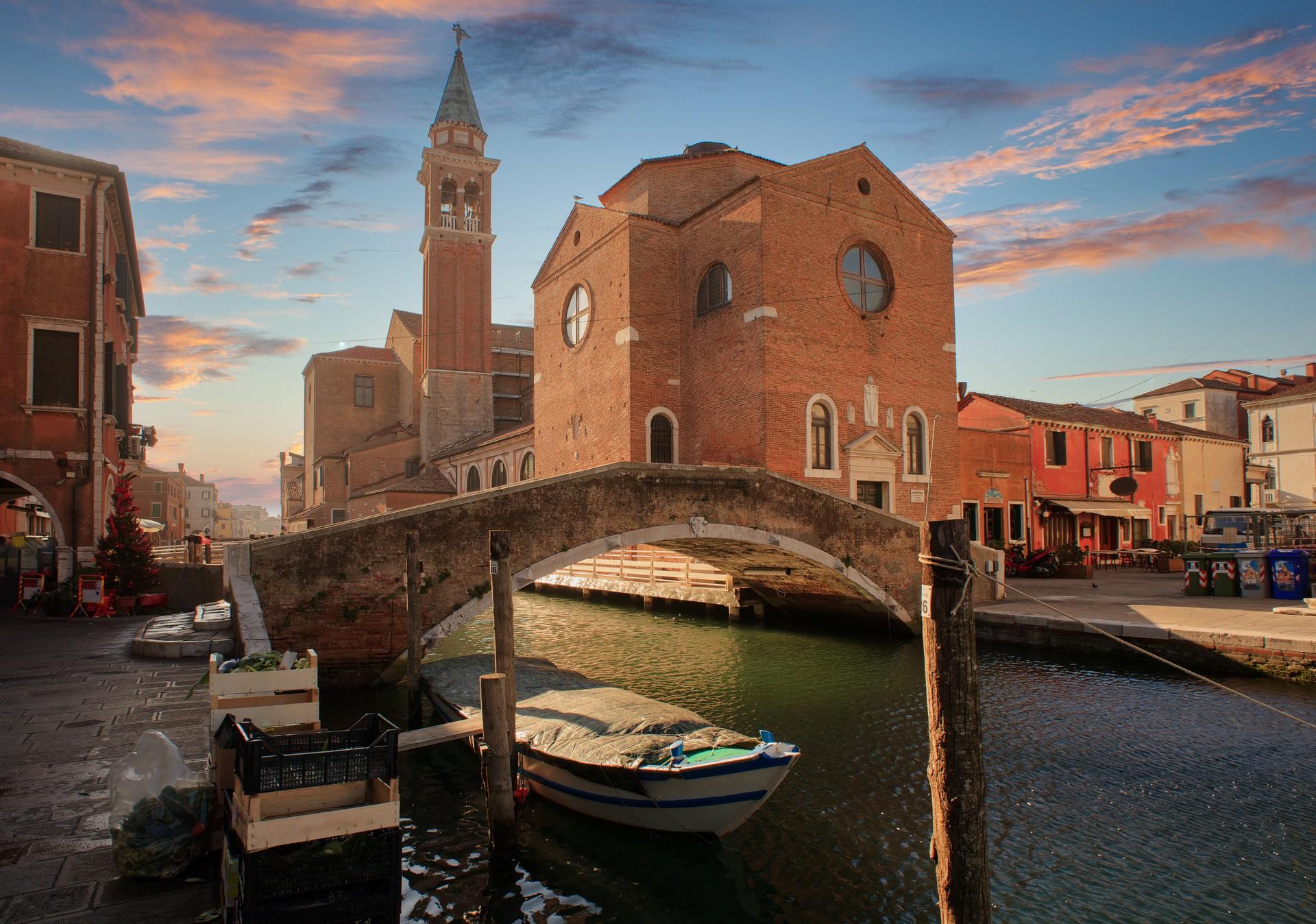
Chioggia weather and climate

Chioggia weather and climate
Day
29 °C
Night
20 °C
Sea
25 °C
Precipitation
48 mm
in month
Rainy days
7 days
in month
Daylight
15 hours
average
Sunshine
9 hours
average
Humidity
71 %
Weather charts for Chioggia

Find more destinations like this
Destinations with similar weather to Chioggia
Other destinations in Veneto - Italy
Closest cities for Chioggia
Weather overview for Chioggia
Weather overview
Chioggia, a coastal town in Italy, boasts a moderate continental climate characterized by mild daily temperature fluctuations, usually ranging from 6 °C (42 °F) in the coldest month, January, to a warm 29 °C (84 °F) in the peak of summer, July. The town experiences the least amount of rainfall in January, averaging about 6 days of rain, while May sees the highest frequency of rainy days, amassing up to 10 days. The Adriatic Sea's temperature is most inviting in August, reaching a delightful 26 °C (78 °F), and stoops to its chilliest at 9 °C (48 °F) in February. Nighttime temperatures can dip to a brisk 0 °C (32 °F) in January and peak at a cozy 20 °C (67 °F) during July nights. Throughout the year, visitors can enjoy varying weather conditions, making it crucial to check monthly forecasts for an optimal travel experience.
January weather
In Chioggia, January heralds the year with the coldest day temperatures, noting a chilly 6 °C (42 °F), while the sea temperature echoes a similar pattern at 10 °C (50 °F). The month also boasts the fewest rainy days, tallying at just 6 days, and the precipitation is at its lowest, a mere 39 mm (1.53 in). Even night temperatures reach their nadir, with a frigid 0 °C (32 °F), and wind speeds are at their gentlest.
February weather
February sees a gradual increase in day temperatures, now at 8 °C (47 °F) in Chioggia, while sea temperatures hit their yearly low. Rain numbers start to rise slightly, now at 6 days. Daylight extends a bit more, offering 4 hours of sunshine. Nighttime warmth begins to reemerge.
March weather
The ascendancy of day temperatures carries on in March, warming up to 13 °C (55 °F) in Chioggia, and the sea begins to respond with a rise of its own. Precipitation marginally escalates, now at 47 mm (1.84 in). Sunshine hours continue to bloom, reaching 5 hours. The night grows less severe with each passing day.
April weather
April showcases a steady climb in temperatures, marking 17 °C (63 °F) during the day in Chioggia, while the gently warming sea reflects a similar trend at 13 °C (56 °F). More frequent rains are observed, hitting a count of 10 days. As the earth turns, the nights grow milder and sunlight extends its stay.
May weather
In Chioggia, May's sea temperature forges ahead, charting at 18 °C (65 °F), and the day temperatures rise in tandem to 22 °C (72 °F). Rainfall steadily increases, noted at 63 mm (2.50 in), and the frequency of rainy days reaches its zenith. Nights grow increasingly temperate, and the number of golden hours under the sun swells.
June weather
As summer approaches, Chioggia sees its sea temperature rise to a balmy 22 °C (72 °F), with land temperatures not far behind at 26 °C (79 °F). The days are longest now, lasting 15 hours, and nights become less cool. More hours are glossed in sun, setting the stage for peak tourist season.
July weather
July in Chioggia is a medley of extremes: the day temperatures culminate at a sweltering 29 °C (84 °F), and the sea's warmth mirrors this at 25 °C (77 °F). The tourist season is in full swing. Rainfall begins its descent, but sunlight is abundant, straddling its peak.
August weather
August's lingering tourist season sees the sea temperature crest at its highest, a soothing 26 °C (78 °F), while day temperatures start their slow decline. Rainfall numbers see a mild uptick, and the solar presence begins to wane, logged at 9 hours of sun.
September weather
Chioggia's September breathes a softer air as day temperatures gently fall to 24 °C (75 °F), and the sea's embrace cools somewhat to 22 °C (72 °F). The night begins its retreat into chill, yet the sun still genially offers 7 hours of its rays.
October weather
October's arrival in Chioggia signifies a deeper descent in daytime warmth, now at 18 °C (65 °F), while the sea temperature recedes in unison, marking 19 °C (66 °F). Rainfall reaches its peak, elevating the count to 76 mm (2.98 in). Fewer hours are graced with sun as autumn advances.
November weather
November in Chioggia ushers in crisper days as temperatures taper off to 12 °C (53 °F), mirrored by a waning sea temperature at 15 °C (60 °F). An embryonic rise in rainy days sets in, augmenting numbers to 8 days. Sunlight becomes more precious, with its duration ebbing to a mere 3 hours.
December weather
With the year's end in sight, December sees all elements in retreat in Chioggia: day temperatures plummet to a brisk 7 °C (44 °F), the sea withdraws its warmth to 13 °C (55 °F), and rainfall declines at 56 mm (2.20 in). The shortest days ensue, and with them, the scarce 2 hours of sunlight.
FAQs
What's the typical number of rainy days in January in Chioggia?
January in Chioggia usually experiences about 6 days rainy days.
How does the sea temperature in Chioggia change in February?
The sea temperature in Chioggia drops to its annual low in February.
How long are the days in Chioggia during March?
Daylight in Chioggia extends to around 12 hours in the month of March.
Is April windy in Chioggia?
April experiences the peak wind speeds of the year in Chioggia.
What's the trend in rainfall during May in Chioggia?
Rainfall in Chioggia escalates in May, leading to the year's high point in the number of rainy days.
How would one describe the climatic conditions in Chioggia during June?
June in Chioggia is typically warm, perfect for beach-goers and outdoor activities.
Are cool nights a feature of the weather in July in Chioggia?
Notably warm nights are a hallmark of July's weather in Chioggia, offering little respite from the day's heat.
How does the daylight change in Chioggia during August?
Daylight begins its gradual reduction in Chioggia throughout August.
What weather transition occurs in Chioggia during September?
September marks a climatic pivot in Chioggia, with temperatures dipping and sunlight hours diminishing.
How prevalent is rainfall in Chioggia during October?
October witnesses the apex of rainfall in Chioggia for the year.
What happens to the sea temperature in Chioggia as winter approaches?
The sea temperature in Chioggia begins its descent in preparation for winter.
How do Chioggia's weather conditions change in December?
December's weather in Chioggia is marked by a noticeable drop in temperatures and sunlight.

